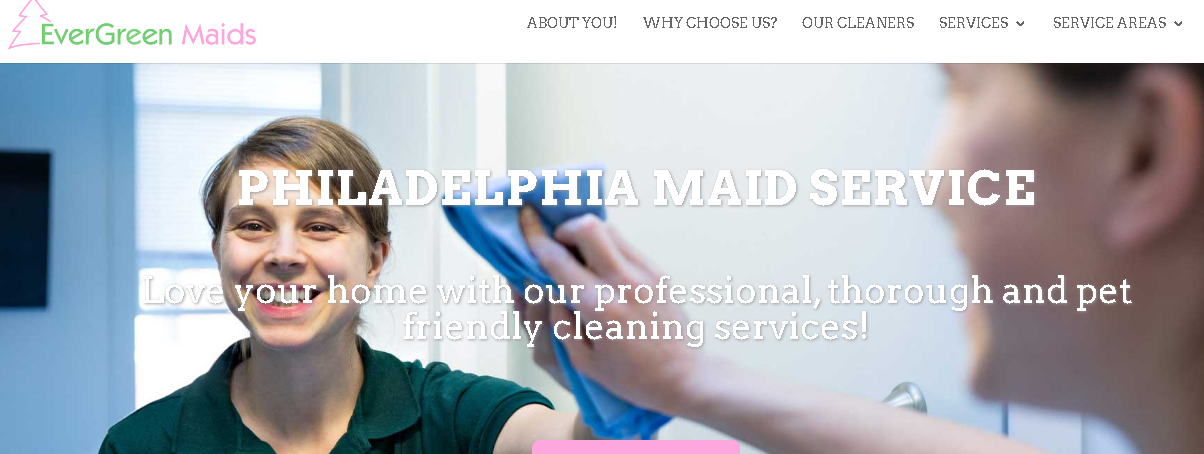What you don’t know about business insurance for the cleaning industry could save you a lot of time and money.
In the insurance industry, cleaning businesses are a very popular risk to insure. Sadly not many insurance agents know how to properly assess this industry. Many business owners find the questions they get from insurance agents to be rather nerve wracking. So allow me to help you! I have answered 9 questions to give cleaning business owners some insight on what insurance agents are looking at when they determine whether or not to insure a cleaning business.
 Why does it matter to an insurance company if I am doing commercial or residential cleaning?
Why does it matter to an insurance company if I am doing commercial or residential cleaning?
Although both types of operations are centered around cleaning, the risks are significantly different. For a workers’ compensation policy, many carriers prefer commercial cleaning because the employees will be typically working in one location and in a controlled environment (oftentimes with the office already closed).
For residential cleaning, the employees more frequently are traveling to several different homes in a typical work day, and can encounter more potential risks for injuries (including dogs, an auto accident, etc.). The same can be said for a general liability policy or business owners package (or BOP) policy, where the potential for claims of injuries sustained based on the cleaning company’s work can be tougher to disprove.
 What are the main concerns insurance companies have when they are considering insuring my business?
What are the main concerns insurance companies have when they are considering insuring my business?
Most insurance carriers want to know accurate information on the work your company is doing. Since the janitorial industry has so much variance, it’s important to explain to your insurance agent all of the different types of jobs your company will take. Some BOP policies will exclude coverage for residential cleaning work if your company claims it is only commercial.
Some other helpful pieces of information carriers like to know include how long you’ve been in business, how many employees you have, how many years experience you have in the industry, and does your company do any floor waxing?
 Why does an underwriter need to know how many employees I have?
Why does an underwriter need to know how many employees I have?
Depending on the time of year, that number can change. This question is not critical to the coverage that an insurance carrier actually puts in place, but it will play a role in the company’s decision to offer a quote and if they can offer any credits to reduce the overall cost of the policy. An insurance carrier mainly wants to have a good idea of the number of employees it will be covering on the policy.
 Does the equipment or chemicals I use affect my insurance rates?
Does the equipment or chemicals I use affect my insurance rates?
The amount and type of equipment you use will only affect the cost of your inland marine (or Tools & Equipment) policy. Otherwise, the insurance company only uses this information as a good indicator of the type of cleaning work your company does.
 If my business has had some claims in the past year or two, what can I do to get insured?
If my business has had some claims in the past year or two, what can I do to get insured?
Our agency has a workers’ compensation program set up with one carrier that is specifically designed to help clients who have had a severe claim in the past. Many insurance carriers don’t want to offer coverage to companies that have had recent claims (statistical studies show a client with one claim is more likely to have additional claims), but there are a few carriers willing to believe that your company will learn from past injuries and try to prevent them from happening again.
If no voluntary market is willing to offer a quote to your company, your state offers a workers compensation insurance fund. This state fund is considered the “carrier of last resort” and usually offers policies at higher prices than the voluntary market, but the policy will provide the workers’ compensation coverage your business needs.
 What kind of safety programs should I have in place for the cleaning business?
What kind of safety programs should I have in place for the cleaning business?
Your company should always have a safety program policy in writing and posted where your employees can see it. The obvious safety measures that should be taken include use of rubber or latex gloves as well as the use of safety glasses and respiratory masks.
A simple safety program policy I like includes sections with information about proper handling/disposal of chemicals, proper use of ladders and step stools, a lifting restriction (no more than 35 pounds, for instance), and a section about driving practices required (seat belts, follow traffic laws, drug and alcohol free, etc.).
I also recommend every cleaning company have a motor vehicle records (MVR) program in place. You should check the driving records of your employees at hire and annually. This not only helps you catch some potential bad hires, but can go a long way toward keeping your employees honest while they are driving their cars on your work time.
 What can I do to get discounts or deductions on my policy?
What can I do to get discounts or deductions on my policy?
Placing your BOP (or GL) policy with the same carrier that provides your workers compensation coverage is a good way to get a multi-policy discount with most carriers. You can also add in commercial auto coverage for additional discounts. Some states can offer credits on workers’ compensation policies if you have an approved drug testing policy. Our agents also work with individual underwriters for companies to try to maximize credits that can be offered to a policy based on your company’s management practices, employee training practices, safety programs, or previous history of no claims.
 Should I get a Business Owners Policy or try to find all insurance policies separately?
Should I get a Business Owners Policy or try to find all insurance policies separately?
A BOP Policy is a great way to get additional coverages for very little extra cost, but a business shouldn’t rely on the BOP alone to provide adequate coverage. A BOP policy is designed to provide good coverage to the “average” janitorial business. If your company is doing something specialized or different from the industry norm, you should speak with your insurance agent about your operations and have them help determine if a BOP policy is better than splitting out your policies separately.
 If I only have 1099 employees, do I really need workers’ compensation?
If I only have 1099 employees, do I really need workers’ compensation?
Yes. It’s a little-known fact that if you are paying someone a 1099 wage and they get hurt on the job, they can file a claim against you (as long as they don’t have an active workers’ compensation policy themselves). If your business doesn’t have a workers compensation policy in place, you don’t have protection from that suit and could risk losing your company.
Tim Davis Tim Davis is the Sales Manager for General Liability Shop.com. Formed in 2005, General Liability Shop.com is an independent commercial insurance agency licensed in all 50. It specializes in commercial insurance products such as general liability, workers’ compensation and property & casualty insurance. The Agency is A+ Rated by The Better Business Bureau.
 Cleaning Business Today is a publication of Tom Stewart and Derek Christian, who also partner in Castle Keepers, one of the fastest growing professional house cleaning services in the US.
Cleaning Business Today is a publication of Tom Stewart and Derek Christian, who also partner in Castle Keepers, one of the fastest growing professional house cleaning services in the US.





